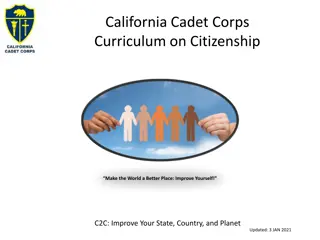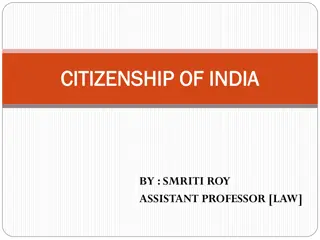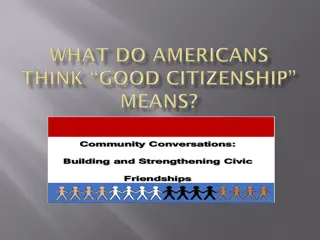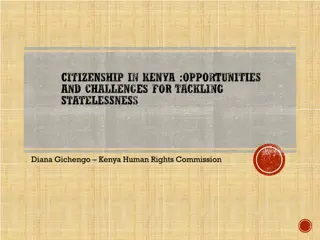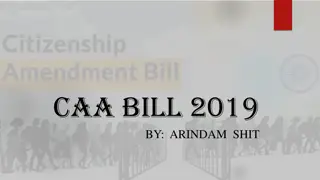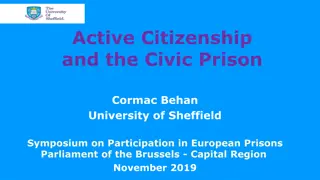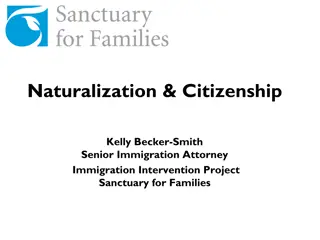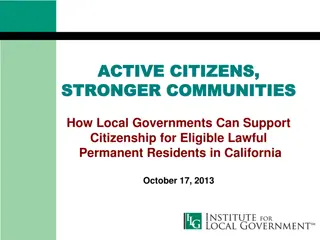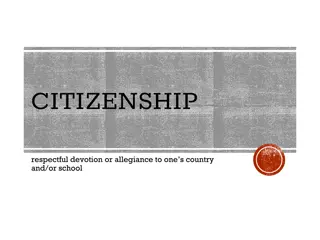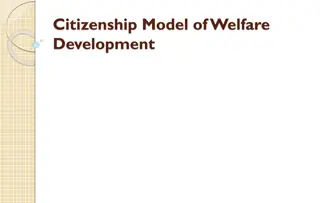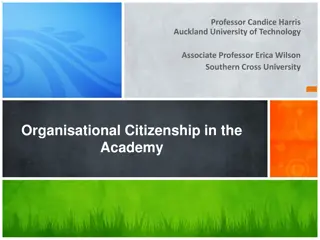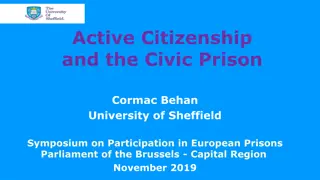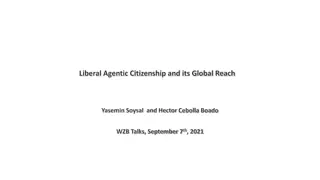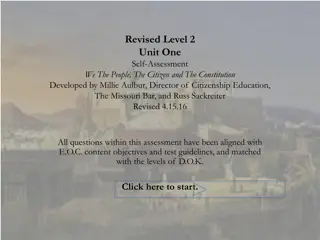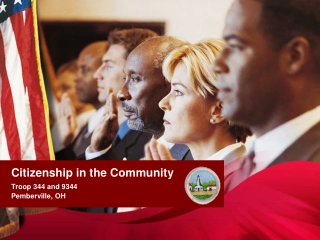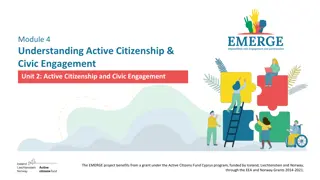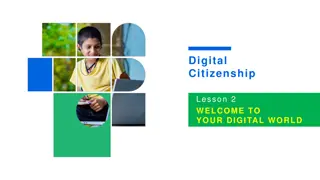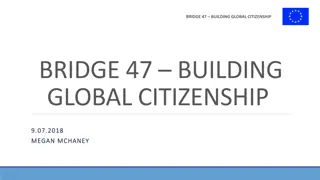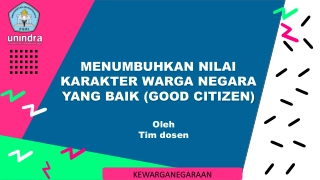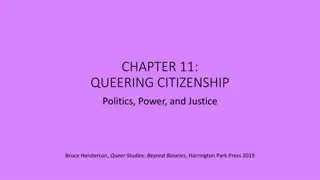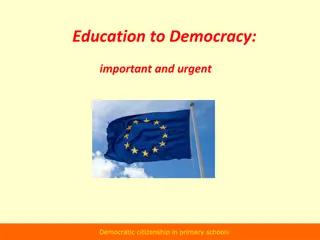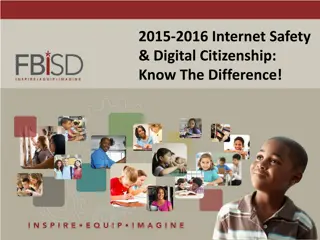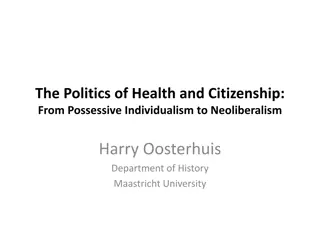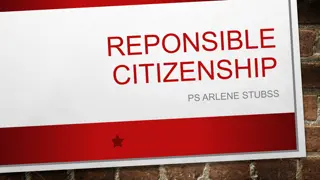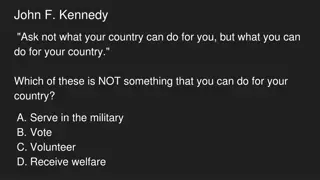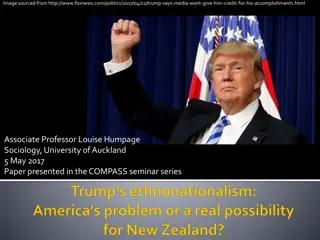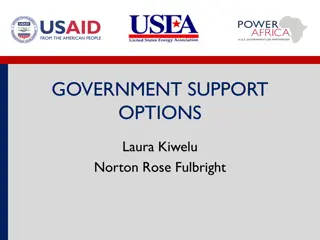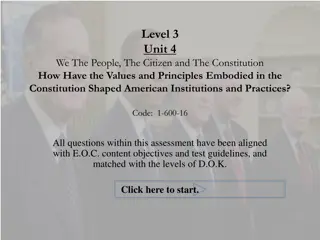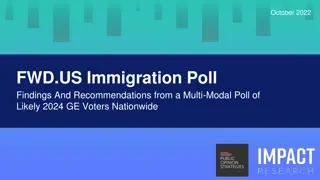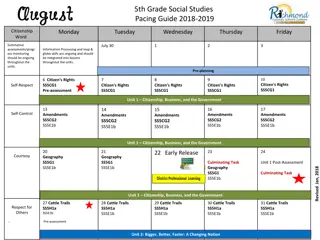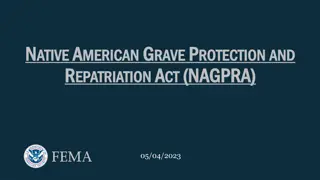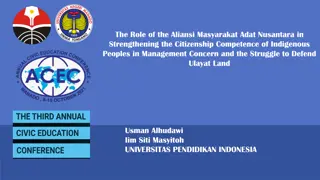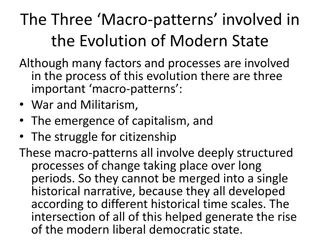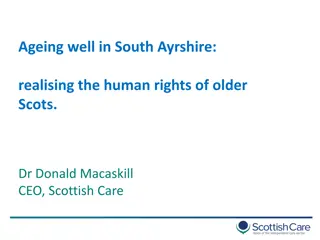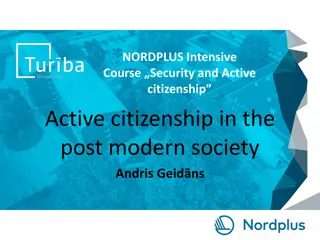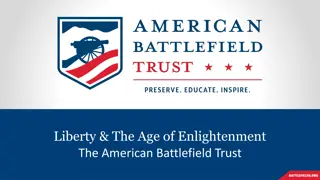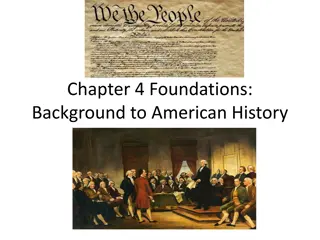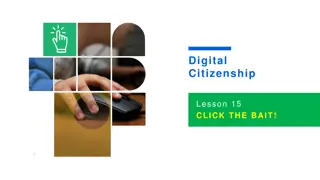Understanding the Role of Government in American Citizenship
Explore the role of government in American citizenship, drawing from the insights of Greek philosophers and the principles of democracy. Delve into key terms such as civic virtue, republicanism, and separation of powers, while contemplating the impact of different forms of government. Reflect on how our country would differ under kings or dictators, and grasp the essence of civic responsibility and the common good.
Download Presentation

Please find below an Image/Link to download the presentation.
The content on the website is provided AS IS for your information and personal use only. It may not be sold, licensed, or shared on other websites without obtaining consent from the author. Download presentation by click this link. If you encounter any issues during the download, it is possible that the publisher has removed the file from their server.
E N D
Presentation Transcript
Unit III - Citizenship and American Government Chapter 1 Citizenship and Responsibility Section 2 The Role of Government
What You Will Learn to Do Understand what it means to be a citizen of the United States, a representative democracy
Objectives Discuss the role of government
Key Terms CPS Key Term Questions 1 - 7
Key Terms Providence - The care, guardianship and control exercised by a deity Classical A theory that holds that the best kind Republicanism - of government is one that promotes the common welfare instead of the interests of one class of citizens Civic virtue - The dedication of citizens to the common good, even at the cost of their individual interests
Key Terms Established A religion supported by the state Religion - through tax money Judeo- Relating to beliefs and practices that Christian - have their historical roots in Judaism and Christianity Private The principles of virtue as expressed in Morality - Judeo-Christian teachings
Key Terms Separation of The division of the government into Powers - executive, legislative and judicial branches
Warm Up Questions CPS Lesson Questions 1 - 2
Opening Question How would our country be different if it was ruled by a king or a dictator? (Use CPS Pick a Student for this question.)
The Role of Government Our Founders were well versed in history. They drew from Greek philosophers writings about government. Plato Aristotle Socrates
The Role of Government Greeks described three types of government: Monarchy Rule by One Democracy Rule by Many Aristocracy Rule by a Few
The Role of Government Our founders were also familiar with their contemporary political thinkers. During the European ______ _____________, reason and science were celebrated and embraced. Age of Enlightenment
The Role of Government The Founders were also influenced by their Judeo-Christian religious tradition. Many different strands of religious thought, but took the Bible seriously and spoke of providence The constitutional system reflected these influences
The Role of Government The Founders turned to the Roman Republic (509 BC 27 BC) as one of the models. It lasted 500 years (before the autocratic Roman Empire) and set the model for ___________________, citizens working together for the common good. classical republicanism
The Role of Government Known for embodying the idea of _________: a willingness to put public service ahead of making money or tending to family civic virtue Cincinnatus
The Role of Government Returned to his farm after service as a Roman consul George Washington was said to have followed the example of Cincinnatus service ethic Cincinnatus
Classical Republicanism American view to making classical republicanism work: Civic virtue Moral education Small, uniform communities
Classical Republicanism Favored small uniform communities Everyone knew everyone No one was richer or poorer Everyone shared a common religion Limitations Americans didn t worship as Romans Didn t want state or established religion
Classical Republicanism First Amendment 1791: Congress will make no law respecting an establishment of religion, or prohibiting the free exercise thereof .
Early Colonial America Embraced its diversity and uniqueness of individuals Sought economic opportunity in a vast country Wanted an expandable system of government
Check On Learning Questions CPS Lesson Questions 3 - 4
Judeo-Christian Heritage Greatly influenced Founders Private morality over Public virtue Recognizing each individual as having a soul, dignity, worth and personal rights
Contemporary Influencers James Madison, Father of the Constitution John Locke Baron de Montesquieu Created concept including both a republic and Proposed philosophy of Natural Rights Proposed balanced mixed government a democracy
Contemporary Influencers Madison s Constitutional Republicanism Combining... Republic Democracy People administer government themselves, so it only works on a small scale People s representatives administer government, so it works on a broader scale
Contemporary Influencers A government deriving its power from the people through elected representatives while protecting the rights of the people with a series of written restrictions The Federal Constitutional Republic
Constitutional Convention of 1787 Madison urged governmental support of citizens _________. civic virtue Introduced systems of checks and balances guaranteeing _________________. separation of powers
Constitutional Convention of 1787 The result of various influences and schools of thought was our United States Constitution. As an heir to this Constitutional system, your rights are ensured. You have a responsibility to protect them for yourself and others.
Ordinary Citizens Defend the Country on 9/11 Armed forces have a special responsibility for defending the United States, but not the sole responsibility. Occasionally , ordinary citizens step up to extraordinary challenges to protect the country.
Check On Learning Questions CPS Lesson Questions 5 - 6
Ordinary Citizens Defend the Country on 9/11 Terrorists hijacked four U.S. commercial aircraft and turn them into guided missiles.
Ordinary Citizens Defend the Country on 9/11 Two planes destroyed the World Trade Center. A third plane hit the Pentagon. There were nearly 3,000 deaths.
Ordinary Citizens Defend the Country on 9/11 Passengers on United flight 93 used their cell phones and learned about the World Trade Center attacks. These heroic passengers didn t say not my job; they didn t wait. They made the ultimate sacrifice for their country. They decided to take action to stop the hijackers.
Ordinary Citizens Defend the Country on 9/11 Timeline: 9:28am Hijackers took over flight 9:32am Hijackers announced there is a bomb on board (a lie to explain the course change) United Flight 93 Sept. 11, 2001 Newark to San Francisco No one knows the intended target of the plane.
Ordinary Citizens Defend the Country on 9/11 Timeline: 9:57am Passengers try to break through the cockpit door to take back the plane and were seconds away from success United Flight 93 Sept. 11, 2001 Newark to San Francisco Hijacker pilot rolls, climbs and dives plane to throw the passengers and crew off
Ordinary Citizens Defend the Country on 9/11 Timeline: 10:03am Hijacker pilot nosedives and plane crashes into field in Shanksville, Pennsylvania United Flight 93 Sept. 11, 2001 Newark to San Francisco
Ordinary Citizens Defend the Country on 9/11 Pilot s objective: .crash his airliner into symbols of the American Public. He was defeated by the unarmed, alerted passengers of United 93. The nation owes a debt to the passengers of United 93. Their action saved the lives of countless others and may have saved either the U.S. Capitol or the White House.
Conclusion Our federal constitutional republic was developed to encourage people to act as civic-minded good citizens. Inherent in citizenship are rights and responsibilities that should not be taken for granted.
Closing Questions CPS Lesson Questions 7 - 8
Review Question In what ways did Cincinnatus act as a role model for our Founding Fathers? (Use CPS Pick a Student for this question.)




